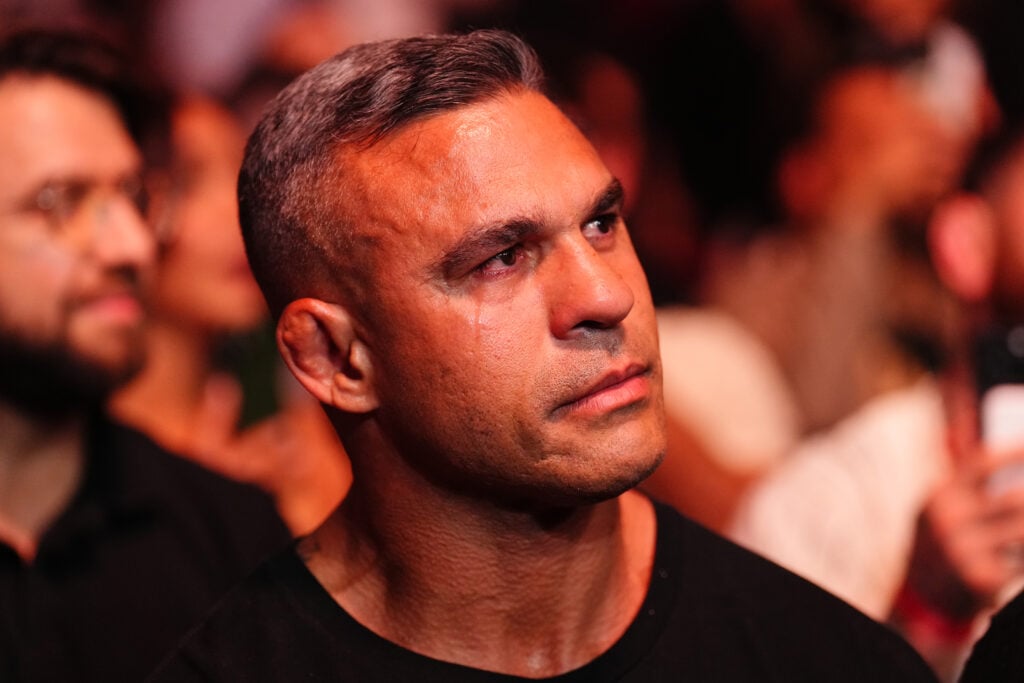In the unforgiving world of combat sports, the roar of the crowd often beckons legends back to the ring long after their prime. For Wanderlei Silva, a name synonymous with brutal efficacy in MMA, his recent return to boxing in Brazil was less a triumphant comeback and more a stark reminder of the sport`s unyielding nature. What unfolded was a harrowing knockout that sent ripples of concern and sharp criticism through the fighting community, particularly from a peer who knows the pressures of the spotlight all too well: Vitor Belfort.
A Fight That Was, and a Fight That Wasn`t
The original narrative was compelling. Two titans of Brazilian MMA, Wanderlei Silva and Vitor Belfort, both veterans of countless wars in the octagon, were slated to settle an old score in a boxing ring at Spaten Fight Night 2. The prospect was a nostalgic dream for many fans, promising a clash of legacies, if not youthful vigor. However, the much-anticipated bout hit an early snag when Belfort, citing a concussion suffered in training, withdrew from the contest. This was not merely a cancellation; it was a pivot point.
Instead of stepping aside, the 49-year-old Silva made the decision to remain on the card, accepting a replacement opponent: Acelino “Popó” Freitas, a professional boxer with a formidable 41-2 record. This substitution immediately raised eyebrows. While Silva`s courage has never been questioned, pitting an aging MMA legend, renowned for his brawling style, against a highly decorated professional boxer, felt less like a fair fight and more like a gamble with increasingly high stakes. Concerns about Silva`s advanced age and previously disclosed long-term health issues from his extensive fighting career only amplified the unease among observers.
The Fateful Encounter and a Collective Gasp
The evening unfolded with grim predictability for many who had harbored reservations. Fans watched in collective dismay as Wanderlei Silva, affectionately known as `The Axe Murderer,` was brutally knocked out cold in a post-fight brawl. The image was disturbing, a poignant visual of a legend caught in a dangerous predicament, far removed from the glory days where he once reigned supreme. While reports soon offered a positive update on Silva’s health, the immediate aftermath was a visceral reminder of the risks involved when a fighter pushes beyond the limits of their physical prime.
Vitor Belfort`s Unfiltered Rebuke
Present at the event, the man originally meant to stand across from Silva, Vitor Belfort, wasted no time in expressing his profound disappointment and anger. His words, delivered with a mix of sorrow and indignation, painted a picture of betrayal and a tarnished legacy. Belfort didn`t pull any punches:
“When we’re at our worst, we reveal who we are, and when we’re at our best, we reveal our hearts. What makes me sad is that this reveals who they always were. Wanderlei, I’m sorry, you did something wrong. You literally destroyed something we built over years. Martial arts, brother. You were fighting an excellent boxer. You shouldn’t even have gotten into the ring with him. The guy got into it with you at the last minute, and you do something like this… What makes me sad is that the whole of Brazil saw this shame. Wanderlei, you need to apologize, brother, because what you did is not right.”
Belfort`s critique was not just about the loss, but about the perceived lack of judgment and respect for the martial arts tradition that both men had helped to build. He saw Silva`s decision to face a professional boxer at his age as reckless, not only for Silva`s personal safety but for the image of their sport.

Beyond the Ropes: The Larger Conversation on Combat Sports Safety
The incident with Wanderlei Silva reignites a critical, perennial debate within combat sports: when should a legend hang up the gloves for good? The allure of one last payday, the yearning for the roar of the crowd, or the simple fighter`s pride to prove “I`ve still got it,” often drives these veterans back into dangerous territory. However, the science of brain health and the cumulative trauma of a fighting career are unforgiving. Silva himself has been open about the long-term neurological effects he has suffered, making his return all the more concerning to those who prioritize fighter well-being.
There`s an undeniable irony in the situation: a comeback intended to perhaps rekindle past glories instead became a stark illustration of the brutal realities of aging in a brutal sport. While the competitive spirit is admirable, the potential for permanent damage to an already storied legacy, and more importantly, to one`s personal health, is a price too steep to pay. Perhaps Belfort`s harsh words, though painful, serve as a necessary intervention, a peer`s blunt assessment of a dire situation.
An Unwanted “Positive” and a Call for Reflection
In the aftermath of such a dramatic event, it`s difficult to find silver linings. Yet, the article concludes with a bittersweet observation: if this horrific knockout ultimately leads to `The Axe Murderer` definitively ending his short-lived comeback, then perhaps there is one positive takeaway. It`s a somber thought, that the most effective way to protect a legend from himself might be through a painful, public defeat.
The episode serves as a powerful cautionary tale, not just for Wanderlei Silva, but for all aging athletes in high-impact sports. It underscores the profound responsibility owed by promotions, commissions, and even fellow fighters, to prioritize long-term health over short-term spectacle. The legacy of a warrior is defined not just by their victories, but by the wisdom of knowing when to lay down their arms. For Wanderlei Silva, one can only hope this latest battle, however unfortunate, marks a definitive end to his competitive journey, allowing his legacy to rest on the unassailable glories of his past.
